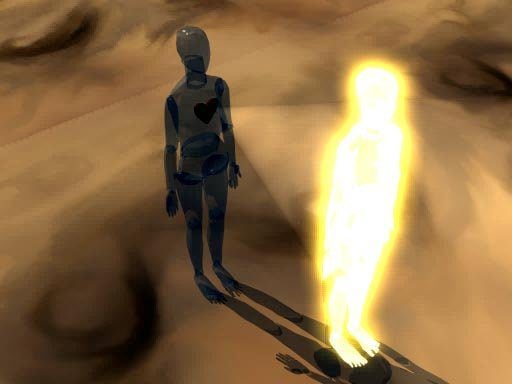Last week I posted an essay called “Left-Brain Christianity or Right-Brain Faith?” which discussed the experiences and work of Dr. Jill Bolte Taylor, a neurobiologist who at age thirty-seven experienced a stroke and lost virtually all of her left-brain functions, functions that it took several years to recover. Among other things, I suggested that many versions of Christianity are “left-brain,” focused on logic, certainty, reason, facts, individuation, and so on, further suggesting that faith would greatly benefit from right-brain energies which include community, oneness, peace, and centeredness.
I was not surprised to receive a number of comments on this blog’s Facebook page pushing back against the very idea of digging too deeply into how the human brain works.
Knowing too much about how the brain actually works is a great way to prove that humans are purely physical things just like rocks, trees, and computers, devoid of any observable indicators of a soul.
This left/right brain stuff violates the truth of scripture.
It is standard fare for Christians to believe that human beings are made of body and soul, physical stuff and a mysterious “non-physical” something called the soul—which turns out to be the most important part of what we are.
I often put my students—many of whom are products of twelve years of Catholic parochial education—in groups and ask them to come up with a definition of the word “soul.” Their collective definitions always indicate that the soul is the part of the human being that is responsible for thought, many of our emotions, and most importantly is the part of the human being that survives physical death—meaning that the soul is a “non-physical” thing (whatever that means). Where did we get this notion from? Newsflash—it isn’t from scripture.

“What exactly am I?” is a basic human question, one that each of us has strong intuitions about. One popular intuition is “I am a physical thing plus something more.” In philosophy, this intuition feeds a model of the human person called dualism, according to which the human being is a tenuous and temporary union of two very different things, soul/mind and body. Dualism has a long and powerful philosophical pedigree; Plato is one of its most eloquent advocates in the ancient world, while Descartes is a powerful advocate of dualism two thousand years later.
Dualism is both highly influential and highly problematic. The sharp separation between mind and body is both psychologically disturbing, in that it provides little guidance as to how integration between the various parts of a person is to be accomplished, and philosophically incoherent, in that it divides reality into camps that not only are different in substance but are actually often at crossed purposes.
Dualism lays the groundwork for a science that ignores the spiritual, a philosophical materialism that belittles the notion of anything other than what is directly in front of us within the reach of our senses, and a spirituality that downgrades the physical or even considers it as evil. Christianity developed in the atmosphere of Plato’s radical dualism; the structure of a good deal of traditional Christian doctrine continues to carry dualistic scars, as the Facebook comments above on my blog post show. Consider, for instance, dualism’s influence on one of the early founders and shapers of such doctrine . . .
I am occasionally responsible for introducing a bunch of freshmen to Augustine of Hippo, a lecture usually followed later in the week by two-hour seminar investigations of his thought. Augustine is second only to the apostle Paul in his influence on the development of early Christian doctrine and belief. I am not a fan. Augustine is one of those influential figures who cannot be ignored, although I would love to. I often deflect the “Introduction to Augustine” lecture to a theology or literature colleague on whatever team I am a member of in the interdisciplinary program I teach in. But occasionally there is no one else to turn to, and it is up to me to provide a Fox News-like “fair and balanced” introduction to a guy I really don’t like. Oh well, that’s why we college professors earn the big bucks (if we did).
The assignment for the particular day I have in mind was Books I-III of Augustine’s Confessions, one of the most influential works in the vast sweep of Western literature. With it Augustine invented a genre of literature as well as a method of theological investigation infused by philosophical acumen. These early books of Confessions are Augustine’s selective memoir of his years from infancy to early adulthood. As I reviewed the text I was reminded of why I find Augustine so disturbing.
The focus of Augustine’s attention is always on the dark side of human nature, on whatever it was inside of him that caused him to always be attracted to what is wrong rather than what is right, evil rather than good. Ranging from his belief that he showed signs of maladjustment to the good from birth (as all infants do), through his obsession with the simple theft of a bunch of pears during his adolescence, to his withering self-criticism over his attraction to the theater as an early adult, Augustine never moves far from an obsession with what John Calvin, many centuries later, will describe as “utter depravity.”
I told my freshmen that Augustine was actually the first Protestant, one thousand years early. To seal the deal, I likened Augustine’s attitude concerning human nature to Martin Luther’s likening of God’s grace applied to human nature as similar to a fresh layer of new fallen snow covering a pile of shit. Divine grace covers a multitude of sins, and a sufficient amount of snow can cover an awful lot of shit. And guess who the pile of shit is?
Augustine seriously bothers me because I grew up in a family, community and world infused with Augustine-like energies. Negative, suspicious, self-absorbed and obsessed with even the slightest aroma of sin, particularly of the sort that involved the body. My problem always was that I didn’t feel like a bifurcated being—my mind and body seemed to work together pretty well—and I sort of liked things made of matter. I didn’t find out until college that the debate about the relationship between soul and body is at the heart of philosophy from the beginning, with Plato arguing for dualism and his star pupil Aristotle saying “not so much.”
As challenging as these issues are in philosophy, they become even more pressing when considering the relationship between humans and what is greater than us. Dualism not only offers a skewed and problematic map of reality, but also fundamentally contorts and deforms the very heart and soul of Christian belief—the Incarnation. If believing that God became human means anything, it means that the greatest and most cosmic dualistic split of all—the one between human and divine—has been healed. The divine response to human failings is not to cover them up but rather to transform the human by infusing it with the divine. The mystery of transcendence and immanence remains, but the promise of the Incarnation is all about immanence—God with (and in) us.
What would a Christianity that that was not infected with the dualistic disease of Greek philosophy look like? I’ll be considering that question as well as others in my next blog post.












